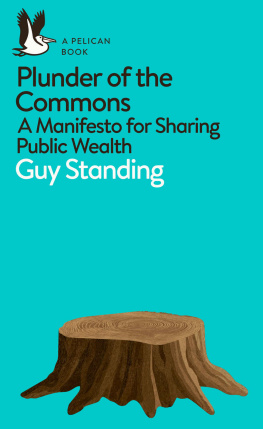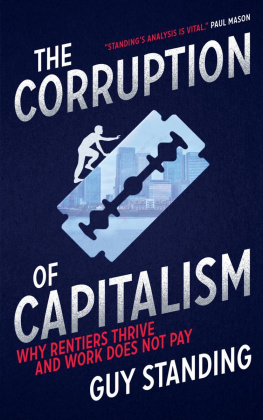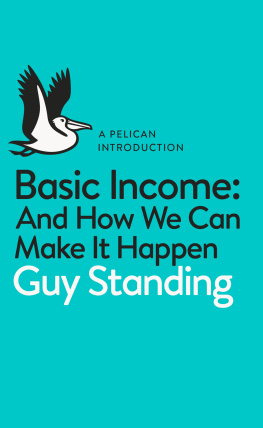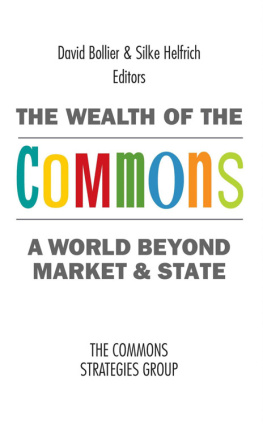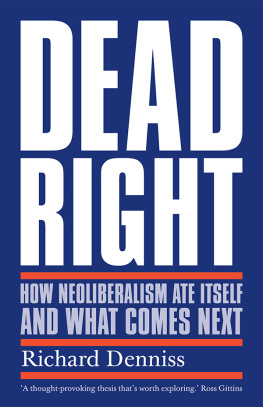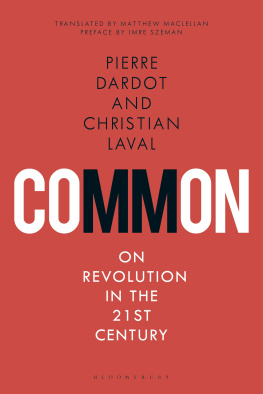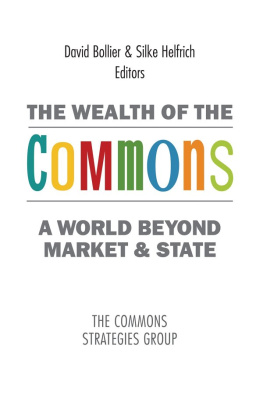Guy Standing - Plunder of the Commons: A Manifesto for Sharing Public Wealth
Here you can read online Guy Standing - Plunder of the Commons: A Manifesto for Sharing Public Wealth full text of the book (entire story) in english for free. Download pdf and epub, get meaning, cover and reviews about this ebook. year: 2019, publisher: Pelican, genre: Politics. Description of the work, (preface) as well as reviews are available. Best literature library LitArk.com created for fans of good reading and offers a wide selection of genres:
Romance novel
Science fiction
Adventure
Detective
Science
History
Home and family
Prose
Art
Politics
Computer
Non-fiction
Religion
Business
Children
Humor
Choose a favorite category and find really read worthwhile books. Enjoy immersion in the world of imagination, feel the emotions of the characters or learn something new for yourself, make an fascinating discovery.
- Book:Plunder of the Commons: A Manifesto for Sharing Public Wealth
- Author:
- Publisher:Pelican
- Genre:
- Year:2019
- Rating:4 / 5
- Favourites:Add to favourites
- Your mark:
Plunder of the Commons: A Manifesto for Sharing Public Wealth: summary, description and annotation
We offer to read an annotation, description, summary or preface (depends on what the author of the book "Plunder of the Commons: A Manifesto for Sharing Public Wealth" wrote himself). If you haven't found the necessary information about the book — write in the comments, we will try to find it.
One of the most important books Ive read in years Brian Eno
In an era of intensifying privatisation, were rapidly losing sight of the idea that there are things that can be shared communally without being owned by anybody, things that stand outside of the market system - for example rivers, forests, and other natural resources. Many of them have already been sold off to private interests, and most of the rest are being pursued. This incendiary book exposes this process and explores its corrosive effect on society and resource maintenance.
We are losing the commons. Austerity and neoliberal policies have depleted our shared wealth; our national utilities have been sold off to foreign conglomerates, social housing is almost non-existent, our parks are cordoned off for private events and our national art galleries are sponsored by banks and oil companies. This plunder deprives us all of our common rights, recognized as far back as the Magna Carta and the Charter of the Forest of 1217, to share fairly and equitably in our public wealth.
Guy Standing leads us through a new appraisal of the commons, stemming from the medieval concept of common land reserved in ancient law from marauding barons, to his modern reappraisal of the resources we all hold in common - a brilliant new synthesis that crystallises quite how much public wealth has been redirected to the 1% in recent decades through the state-approved exploitation of everything from our land to our state housing, health and benefit systems, to our justice system, schools, newspapers and even the air we breathe. Plunder of the Commons proposes a charter for a new form of commoning, of remembering, guarding and sharing that which belongs to us all, to slash inequality and soothe our current political instability.
Brilliant, insightful, terse, apposite, daring, and transformative. A must read to understand both the past and the future Danny Dorling, author of All That Is Solid
Guy Standing brings great historical knowledge, political insight, and passion to documenting the market enclosures of our common wealth: the great unacknowledged scourge of our time. Plunder of the Commons is both a troubling expos and a practical-minded call to reclaim the commons for ourselves and posterity. Sitting politicians will ignore this stirring book at their peril. Incoming reformers will learn how we might transform our predatory system of economics and the complicit political culture. David Bollier, Director of the Reinventing the Commons Program at the Schumacher Center for a New Economics and author of Free, Fair and Alive: The Insurgent Power of the Commons
This clear and radical exposition is a call for the defence of the commons, and one of the most important books Ive read in years. Brian Eno
In this majestic work, Guy Standing not only chronicles the historic plundering of our common wealth. More importantly, he shows how we can reclaim that wealth to address our most urgent contemporary problems: economic insecurity and ecological destruction. This is history, analysis and vision, all at their very best. Peter Barnes, author of Capitalism 3.0
Standing not only wants to remind us how much common land in Britain has been enclosed by the wealthy few. His vision of the commons is extremely capacious...his provocation could hardly be timelier -- Duncan Kelly Financial Times
Guy Standing co-founded the Basic Income Earth Network and now serves as its honorary co-President. He has held professorships at the University of Bath and at SOAS, was programme director at the International Labour Organisation and has advised the UN, World Bank and governments around the world on labour and social policy. He is the author of the bestselling The Precariat: The New Dangerous Class (2011), Basic Income: And How We Can Make it Happen (2017) and is a Fellow of the Academy of Social Sciences.
Guy Standing: author's other books
Who wrote Plunder of the Commons: A Manifesto for Sharing Public Wealth? Find out the surname, the name of the author of the book and a list of all author's works by series.

